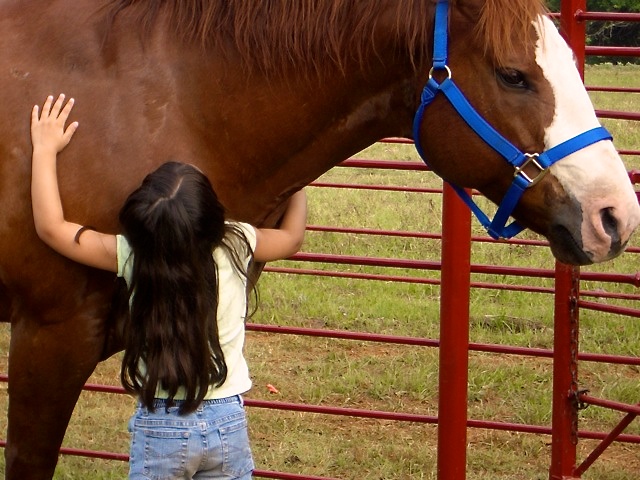
Equine Assisted Counseling
Equine assisted counseling offers a safe environment to understand issues while learning to relate and communicate with a horse. The therapist indirectly teaches the client how to apply these same skills in interpersonal relationships. Through equine activities, clients learn to recognize dysfunctional patterns of behavior and how to develop more healthy relationships.
By working with a large, powerful horse, clients are not only able to develop, but apply skills and confidence to intimidating or challenging situations in their daily life. Like humans, horses have distinct personalities and respond to attitudes, body language, and behaviors, thereby providing clients an opportunity for immediate symbolic learning. In this type of counseling, the horse helps with personal and relationship awareness, by providing clients an opportunity to look at their strengths and weaknesses, self-worth, underlying issues, consequences of personal actions, attitudes, as well as problem-solving, teamwork, and leadership skills.
Individuals with emotional or behavioral issues due to trauma, abuse, neglect, abandonment, or a disability may be resistant in talk therapy. However, in order to interact with, relate to, or care for a horse, clients have to be authentic, self-soothing, patient, clearly communicating, and respectful. During development of these skills the client learns how to collaboratively create a safe environment which is conducive to learning, healing, and growth.
Equine therapy sessions can be an excellent tool for counteracting criticism, rejection, feelings of inadequacy, meaninglessness, frustration, anger, or anxiety. A client can learn that these feelings are natural, yet have consequences while developing appropriate coping skills when working with horses. Some of the skills, like learning to saddle up or walk a horse, can be learned fairly quickly and give the client an immediate sense of success. As the person improves their caring ability for the horse, self-confidence often increases as well as the ability to better relate to self and others. No prior horse experience is necessary.
For more information about Equine Assisted Psychotherapy and its benefits, please visit the EAGALA website: EAGALA.org